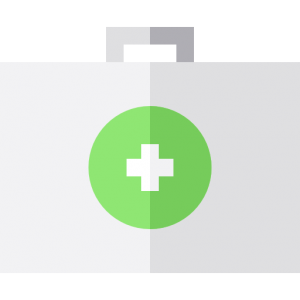SERVERS SECURITY We provide a wide range of services that will help protect your business
- NG-Scanner
- Monitoring NG
- Palo Alto Networks
- Protection against DDoS
- Laboratory services
- Protection of the brand

Vulnerability Scanner for Web Applications.
Regular scanning allows you to learn about vulnerabilities before the hacker does, receiving signals about possible problems. Small companies and website owners do not profitably hire a staff security specialist, and scanning is a good alternative to a specialist.

Data leak warning.
Our company offers an analysis of the organization’s cyber threats, which does not require the installation of a software or hardware solution. This is a kind of subscription to the actual data tape for the organization.

New generation security devices.
An innovative network security platform, the core of which is the next generation firewall, which operates on the basis of the unique technology of App-ID developed by PA Networks, provides network security at the application, user and content level using both physical and virtual architectures.

We use CloudFlare service.
DoS-attack – an attack on the computer system in order to bring it to failure, that is, creating conditions under which legitimate users of the system can not access the provided system resources (servers), or this access is difficult. This type of attack is often used for commercial and political purposes. How to protect from ddos? Use our services.

Computer-technical expertise Collection of digital evidence.
Investigating cybercrime and proving the guilt of an attacker is impossible without a properly drawn up expert’s report, which will be used as evidence in court. You can order from us the expertise of any complexity.

Business Reputation Management.
The program is a set of tools for monitoring, and in case of detection – to stop the violation of rights of the right holder. The violation will be eliminated as soon as possible, and with minimal losses for the client.
OUR SERVICES
Monitoring NG
Data leak warning.
NG-Scaner
Vulnerability Scanner for Web Applications.
Laboratory services
Computer and technical expertise Collection of digital evidence.
Protection of the brand
Business Reputation Management.
Anti-DDoS
Using the CloudFlare service.
Palo Alto Network
New generation security devicesя.
Admin. for security
Our goal is to protect your sites.
PEN-Test
Аудит информационной безопасности
DDOS PROTECTION SERVICE
Thanks to our services, you can protect your website from attacks. The price of protection against ddos attacks starts from 29.99 dollars.
As a rule, attackers attack resources by ip-address, so the main types of attacks are:
UDP flood
On the random ports of your server sent a huge amount of data, the server in this case begins to check the availability of the service on the port, in case of an error gives an answer and this operation requires resources.
ICMP flood
similar to the previous type of attack. Attacking computers send a huge amount of "ping-requests", in this case the server issues an "echo-reply" for each request. If there are too many requests and the server can not respond to requests - it will hang or reboot.
SYN flood
TCP protocol was based on the principle of "triple handshake." The principle of attack is based on the fact that the attacking computer sends a SYN packet, the server opens a connection for it, which hangs for a while (timeout), if the corresponding response has not been received. Attacking computers send a large number of packets, the server opens many connections that can not be serviced, which causes a failure.
MAC flood
Not the most common way. At which the network equipment is attacked. The principle is simple - empty packets with different MAC addresses are sent. Switch reserves for each MAC-address resource. In the event that there are too many addresses, the switch may stop responding to such requests or cause a routing failure.
Ping of death
In this case, attackers send non-standard ip-packets (more than 65535 bytes), which cause hardware failure. Slowloris - the attacker opens a lot of http-connections to the server, keeps them open (not to be closed by timeout). As a result, server connection limits are quickly clogged and the server stops responding.
Slowloris
The attacker opens a lot of http-connections to the server, keeps them open (so that they do not close on time-out). As a result, server connection limits are quickly clogged and the server stops responding.
Reflected attacks
Falsified packets with the IP address of the attacked computer are sent to other IP addresses of computers. As a result, responses from DNS servers do not come to the sender's server, but to your server. The answers are usually 10 times the query itself.
Service degradation
the classic way of attack. In this case, attacking computers begin multiple updates of any page of the server. In this case, it turns out to be a "visitor simulation", if there are too many of them, the server will initially not have enough resources for processing, and in the future may refuse to service at all.
Multi-vector attacks
use professional attackers. In this case, a combination of several methods of attack is used, which complicates the identification and selection of funds for the fight.
